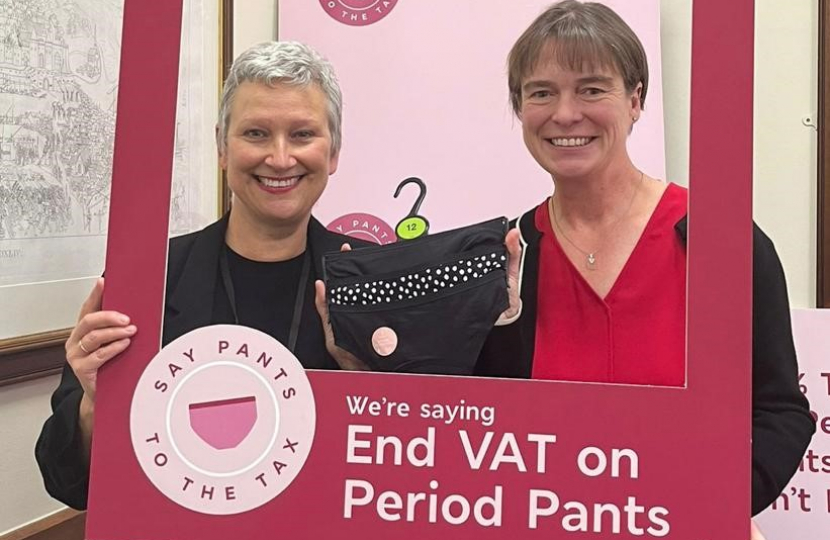
Selaine Saxby MP is saying Pants To the Tax this week – joining a coalition of retailers, NGOs, period pants brands and politicians across all political parties to call for the Government to remove the 20 per cent VAT that applies to period pants.
This final push comes after Selaine joined the M&S delegation to Downing Street to ‘Say Pants to the Tax’ in October. Consumers currently pay a 20% tax on period pants as they are classified as garments. Other period products such as pads, tampons and menstrual cups are exempt from VAT. The removal of VAT would also level the playing field for consumers who want to use more sustainable period products and make period pants more accessible to people.
The Westminster event sponsored by Selaine comes one week ahead of the Autumn Statement on the 22nd November and is the culmination of Say Pants to the Tax - a campaign that M&S and period pants brand, WUKA launched in August and is backed by a parliamentary petition that accumulated more than 36,000 signatures.
In September, M&S pledged to pass the entirety of the cost saving onto customers which means a three pack of period knickers that currently retail at £20 has a lower price of £16, until the government commits to Say Pants to the Tax.
Selaine Saxby, MP for North Devon said:
“I am glad that the Government have removed VAT on sanitary products, but it’s only right that the Chancellor extends that VAT cut to period pants. They are essential for many women and girls and have the bonus of being better for the environment than disposable products. I am proud to stand with the campaign to Say Pants to the Tax and hope to hear this included in the Autumn Statement.”
Victoria McKenzie-Gould, Corporate Affairs Director at M&S added:
“Our campaign has had huge support from a breadth of politicians, retailers, charities, and business leaders – all asking for the Government to level the playing field on period products. Just one week away from the Autumn Statement - we urge the Chancellor to do the right thing and make this official legislation. It’s a tiny percentage of the Government’s budget but a change that will make a big difference to women’s budgets across the country.

